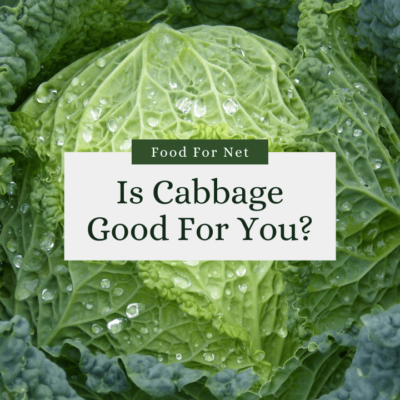
Asparagus is most famous for making your pee smell a bit weird, but there’s so much more to the green vegetable than just that. It’s also a rich source of fiber, contains some antioxidants, and can help with weight loss. Is asparagus good for you, then? Well, with so many benefits, it’s easy to see how it could be.
Still, the benefits are only ever half of the story. We still need to talk about the problems with asparagus too. Every type of food under the sun has at least a few issues. As you’ll see though, the issues aren’t a reason to avoid asparagus. Not at all. Asparagus can still be a delicious and nutritious addition to your diet, especially if you pair it with the right spices.
Is Asparagus Good For You?
- The Nutritional Profile Of Asparagus
- Benefits Of Asparagus
- How Asparagus Could Be A Problem
- What Does Asparagus Taste Like?
- What Does Asparagus Mean For Kidney Stones?
- What About White And Purple Asparagus?
- Final Thoughts
The Nutritional Profile Of Asparagus

Let’s start with the nutrients, as they influence your health in so many ways. For a four spear serving of cooked asparagus, you get the following pattern:
- Calories: 13.2
- Carbohydrates: 2.5 grams
- Fiber: 1.2 grams
- Sugars: 0.8 grams
- Protein: 1.4 grams
- Vitamin K: 38% of your daily target
- Folate: 22% of your daily target
- Vitamin A: 12% of your daily target
- Vitamin C: 8% of your daily target
- Thiamin: 6% of your daily target
Other interesting nutrients include selenium, copper, iron, magnesium, niacin, and vitamin E, all at 5% of your daily targets or below.
The nutrient profile mightn’t look amazing at first glance, but there are some interesting things going on. For one thing, you’re getting a decent amount of vitamin K and folate per serving. These nutrients are both important.
The folate is particularly relevant for pregnant women, but it’s still relevant for the rest of us too, as folate helps to produce red blood cells.
Asparagus can even be considered to be a nutrient dense food, as it contains a decent number of nutrients per serving, along with hardly any calories. This combination of features makes asparagus an easy way to boost your nutrient intake.
Benefits Of Asparagus
A Useful Source Of Fiber
Fruits and vegetables provide us with fiber, an important macronutrient that helps to improve your digestion, feed your gut bacteria, keep blood sugar levels balanced, and even reduce blood cholesterol levels. Yet, as important as fiber is, American fiber intake remains shockingly low – with only around 9% of women and 5% of men hitting their daily fiber targets.
This is a shocking statistic, especially as insufficient fiber can increase the risk of diabetes and heart disease.
Asparagus won’t solve your fiber problems overnight, but it will help, as you get 1.2 grams of fiber in four spears of the vegetable. Don’t forget about fiber rich foods either, as these can boost your fiber intake even further.
Most of the fiber in asparagus is insoluble fiber. This is the type that helps to keep you regular. There is some soluble fiber too, but not a large amount. You’ll need to turn to ingredients like oats, avocados, and flaxseed to increase your soluble fiber intake.
Rich In Antioxidants

There are also the antioxidants to think about. These plant-based compounds are found every type of fruit and vegetable, and they’re powerful.
The underlying idea is simple enough – antioxidants decrease oxidation. Specifically, they help to lower oxidative stress and prevent harmful oxidation, the type that can cause significant problems. By doing so, antioxidants can protect our cells and DNA from damage, potentially lowering our risk of disease.
With asparagus, you’re getting a decent amount of glutathione, vitamin C, and vitamin E, which are all antioxidants. There are also plenty of polyphenols and flavonoids present as well – compounds that have their own antioxidant properties.
If you want the most antioxidants, look for purple asparagus. This variety is a little difficult to find, but it is a rich source of anthocyanins. These anthocyanins are powerful antioxidants and aren’t that prominent in green asparagus.
Now, antioxidant rich foods aren’t exactly hard to come by, but there’s something to be said for variety. After all, the various antioxidant compounds all have their own effects in the body. Getting a large selection of these in your diet is likely to offer many more benefits than focusing on a small selection of so-called superfoods.
So, why not use asparagus to help boost your antioxidant intake?
Can Help With Weight Loss
You’ve heard about asparagus as a weight loss tool, right? That idea isn’t just hype. The vegetable helps your weight loss journey in plenty of ways.
For starters, it’s surprisingly filling, due to the water and fiber content. It’s low in calories too, making asparagus an easy choice when you want a snack that won’t promote weight gain.
Asparagus may even have some direct weight loss benefits too, due to the alkaloid asparagine. This chemical can help to break down fat, potentially increasing the amount of weight you lose.
Don’t forget about all of the nutrients either. These certainly don’t hurt your weight loss journey, as you need them to stay healthy and to keep your body functioning well.
It Acts As A Diuretic

Have you ever noticed that asparagus tends to make you pee? That effect isn’t in your mind, as asparagus really is a natural diuretic.
The diuretic effect can be surprisingly useful, as it helps to flush out your body and reduces the accumulation of excess salt and fluid. Diuretics often help to promote a better fluid balance, and natural options like asparagus are often much gentler than diuretic medications.
Lowers Blood Pressure
Asparagus may help with your blood pressure levels too. This matters, as high blood pressure is a common problem in the United States and a key risk factor for heart disease.
The potassium in asparagus helps here, as this mineral is directly linked to your blood pressure levels. While asparagus isn’t incredibly rich in potassium, you do get enough to make a difference.
That’s not all. Early studies suggest that there’s an active compound in asparagus that helps with blood pressure levels too. This compound could make asparagus even more powerful for blood pressure than you might expect.
The evidence isn’t there for humans yet, but honestly, what do you have to lose? Asparagus is naturally low in fat and sodium, so it certainly won’t put your heart health at risk.
How Asparagus Could Be A Problem
High FODMAPs
Asparagus falls into a category known as high FODMAP foods, as it contains a decent amount of mannitol, along with some fructans and fructose. All three of those compounds are fermentable carbs. As that name suggests, these carbs ferment in your gut, a process that releases gas.
For most people, that fermentation process isn’t a big deal. Some, however, experience significant side effects, including stomach cramps, bloating, and even diarrhea.
People with digestive disorders like irritable bowel syndrome (IBS) may be particularly vulnerable to FODMAPs. Many choose to focus on a low FODMAP diet, to cut down on some of their symptoms. If you are taking this approach, then you may need to avoid asparagus entirely and turn to low FODMAP vegetables, like cucumber, zucchini, and green beans.
Still, low FODMAP diets are only relevant if you experience side effects from high FODMAP foods. If this isn’t the case, then foods like asparagus can be good for you and shouldn’t be removed from your diet.
Might Increase Gout Risk
Asparagus is relatively high in purines, which promote the production of uric acid. Our bodies normally handle uric acid well, but too much uric acid in the blood can lead to problems, including an increased risk of gout.
Some theories suggest that avoiding high purine foods is the best way to decrease gout risk and protect your health.
However, not all research agrees. Some studies suggest that high purine vegetables don’t increase gout risk in the same way that other high purine foods do. The nutrients in vegetables like asparagus are important for your health too, so it would be a shame to cut them out if you don’t need to.
It Makes Your Pee Smell Weird

This one isn’t a serious issue, as the effect that asparagus has on your pee doesn’t mean anything about your health at all. The effect is more of a curiosity than anything.
There’s something even stranger about it too – the fact that only some people experience a strong smell from asparagus. Only some of us digest the asparagusic acid in asparagus in a way that creates a strong smell. And, even more strangely, some people simply can’t smell the effect when it does happen.
What Does Asparagus Taste Like?
Asparagus has a strong and distinct flavor, one that draws mixed opinions and is surprisingly difficult to describe. Some people compare asparagus to broccoli, as both vegetables have an earthy flavor. However, asparagus has some extra bitterness that you don’t find with broccoli.
The flavor varies somewhat depending on how asparagus is cooked and what you serve it with. Indeed, asparagus tends to take on the flavor of other ingredients, which makes it versatile when you’re cooking.
So, if you’re not fond of the flavor of asparagus on its own, try cooking it with strongly flavored ingredients, like garlic. Doing so should reduce some of the intensity of asparagus, making it much easier to enjoy.
What Does Asparagus Mean For Kidney Stones?
Asparagus is interesting for kidney stones. On one hand, it’s a moderate oxalate vegetable. This should mean you can eat small servings without any problem, even if you’re sensitive to kidney stones.
Boiling asparagus can help too, as some of the oxalates will leach out into the water, giving you less in the asparagus itself.
However, if you have uric acid kidney stones, then you might need to avoid asparagus instead. Thankfully, this type of kidney stone is less common (most kidney stones are calcium-based instead), so most people don’t need to worry.
What About White And Purple Asparagus?

While asparagus is most often found as bright green spears, this isn’t the only version of the vegetable. There are also white and purple types of asparagus, each with their own interesting properties.
Let’s start with white asparagus. This tends to be thicker than the other types of asparagus and is almost entirely devoid of color. This lack of color comes from how the asparagus is grown under mounds of earth, which prevents sunlight from reaching the asparagus, so the green pigment chlorophyll never forms.
White asparagus ends up with a bitter skin that needs to be peeled, but the underlying asparagus is more tender than either of the other types.
Purple asparagus, on the other hand, comes from one of two main varieties – Pacific Purple or Purple Passion. It is a little sweeter than regular asparagus, so you might prefer this type if you find that regular asparagus is too bitter.
The coloring comes from pigment molecules called anthocyanins. These are powerful antioxidants, which could make purple asparagus even healthier than the green version.
However, this pigment tends to leach out when it is cooked. To avoid this, it’s best to serve purple asparagus raw or cooked very briefly over a high heat.
Final Thoughts
Asparagus has plenty of good things going for it. The vegetable provides you with fiber, nutrients, and antioxidants, all of which have countless benefits for your health. It’s also a low calorie vegetable, one that can easily be a part of any weight loss diet.
Asparagus is also versatile, easy to prepare, and is often inexpensive. As such, it’s incredibly easy to add asparagus to your diet and get all the benefits that it has to offer.
Purple asparagus may be the most powerful type, due to the extra antioxidants. Still, don’t despair if green asparagus is all you can find. This type still contains more than enough benefits. The main issues with asparagus are the FODMAP compounds and the purine content. These could be an issue if you have irritable bowel syndrome or are vulnerable to gout. Thankfully though, most people should be able to enjoy asparagus with no problems at all.
Frequently Asked Questions
Can You Eat Raw Asparagus?
Asparagus is normally cooked, as cooking makes it softer and easier to eat. However, you can eat asparagus raw as well. Because raw asparagus is tough, it’s best to slice it thinly or marinate it before serving.
Is Asparagus A Diuretic?
Asparagus does have mild diuretic properties, largely due to the presence of asparagine and the vegetable’s high water content. This diuretic effect has many benefits, including lowering blood pressure and decreasing the risk of kidney stones.
Does Asparagus Cause Gas?
Asparagus contains raffinose, which is a complex sugar that our bodies sometimes struggle to digest. When this happens, raffinose and some other carbs can ferment in the gut, leading to side effects like gas and bloating.
Is Asparagus Keto Friendly?
Asparagus is excellent for keto dieters, as you get less than half a gram of net carbs per spear. As such, the vegetable is an easy way to increase your nutrient and fiber intake while on a keto diet.
Is Asparagus An Aphrodisiac?
Asparagus has a surprising reputation as an aphrodisiac, partly because of the vitamin E it contains, which may stipulate genital blood flow. The shape of the vegetable reinforces this idea too.

















 5 Best Plant-Based Sausage Brands
5 Best Plant-Based Sausage Brands
Leave a Reply